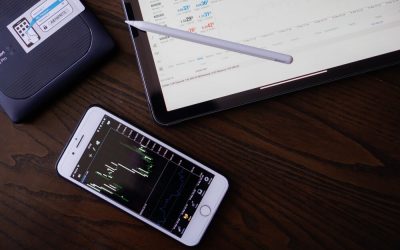
Article content
Mistake 1: Lack of Preparation
Beginner traders often enter the market without a deep understanding of its mechanisms, instruments, and strategies. A lack of understanding of the basics and overestimating one’s abilities can result in poor decision-making and lead to serious financial losses.
How to Avoid: It’s important to take the time to study the basics of trading, including market analysis, trading tools, and strategies. Explore books, online courses, and articles posted on our blog. Start with trading on a demo account to gain experience without the risk of losing capital.

Mistake 2: No Trading Plan
Trading without a clear plan leads to impulsive and emotional decisions, increasing the risk of losses. Without a well-defined strategy, traders often get lost, not knowing when and why to open or close positions.
How to Avoid: Create a detailed trading plan with clear criteria for entering and exiting trades, stop-loss and take-profit levels, and a capital management strategy. Set realistic goals and limits. Be disciplined and consistent in your trading.
Mistake 3: Poor Risk Management
Using too much capital in one trade increases the risk of significant losses. This is especially true if several trades in a row turn out to be unsuccessful.
How to Avoid: Master the basics of risk management. Determine the maximum percentage of capital that you are willing to risk on a single trade (it is recommended not to exceed 1-2%). Use stop-loss orders to minimize losses. Don’t let emotions cause you to deviate from your chosen trading strategy.

Mistake 4: Emotional Trading
Sometimes traders, influenced by emotions such as fear or greed, deviate from their initial strategy. Typically, such emotionally driven decisions lead to losses.
How to Avoid: Develop a trading strategy and strictly follow it to minimize emotional influence. Practice stress management techniques, such as meditation or regular breaks. Keep a trading journal to analyze mistakes and successes, as well as to strengthen trading discipline.
Mistake 5: Incorrect Use of Leverage
Using leverage increases not only the potential profit but also the associated risks. Using excessive leverage can lead to significant financial losses, especially in situations when the market trend moves in the opposite direction to your trade.
How to Avoid: Start with small leverage, gradually increasing it as you gain experience and confidence in your trading strategies. Always consider the size of potential losses and do not exceed acceptable limits.

Mistake 6: Neglecting Market Analysis
Neglecting market analysis reduces your understanding of its functioning and price movement direction. Consequently, abandoning an analytical approach increases the risk of making erroneous trades.
How to Avoid: Study and regularly apply technical and fundamental analyses. Monitor market news, economic indicators, and utilize various analytical tools to make informed trading decisions.
Mistake 7: Following Rumors
Some traders are guided by unverified rumors or advice instead of conducting their own analysis. This can lead to unfounded and risky trading decisions.
How to Avoid: Always conduct your own analysis and critically evaluate any information received. Use reliable sources and do not rely on advice without thorough verification. Learn to distinguish reliable information from noise and speculation.
Each of the mentioned mistakes can lead not only to financial losses but also negatively impact your professional development. Regularly reviewing your trades and analyzing your decisions will help you identify and correct common mistakes, as well as significantly improve your trading skills.
Recommended reading:






